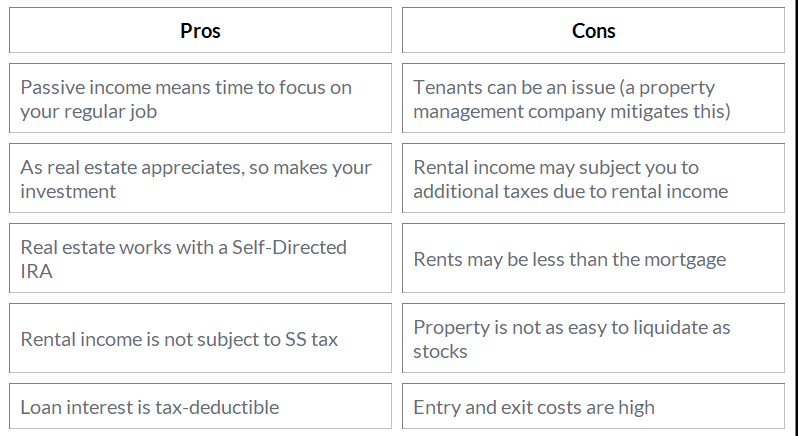Deal Structuring Secrets
Unlocking deal structuring secrets can make or break an investment, and these powerful insights often hide within the pages of a Private Placement Memorandum (PPM).
Watch Episode 59: Deal Structuring Secrets with Seth Bradley, Esq.
Get ready to dive into the captivating world of deal structuring secrets within a PPM! Discover how these hidden gems can unlock tremendous benefits for you as a savvy real estate investor.
Deal Structuring Secrets In A Private Placement Memorandum
A Private Placement Memorandum (PPM) is a document that provides detailed information about a company's business, finances, and investment offering. Its primary purpose is to inform potential investors for private offerings, especially in real estate, about associated risks that vary depending on project specifics.
Summary Of The Offering
The Executive Summary of a Private Placement Memorandum (PPM) is a concise overview of the investment offering and the company:
- Company Overview
- Offering Overview
- Business Model and Strategy
- Market Opportunity
- Key Personnel
Offering
The Offering section details the specifics of the investment opportunity in detail:
- Securities Offered
- Offering Amount
- Price Per Security
- Minimum Investment
- Use of Proceeds
- Risk Factors
- Exit Strategy
- Subscription Procedures
Rule 506(b) vs. Rule 506(c)
While similar, these rules differ in who they allow to invest and how advertising occurs.
Rule 506(b)
Rule 506(b) allows a company to raise unlimited capital from accredited investors and up to 35 non-accredited investors.
Rule 506(c)
Rule 506(c) was introduced through the JOBS Act of 2012 to make it easier for companies to raise capital. Under this rule, a company can advertise its offering and solicit investments publicly, a significant departure from the limitations of 506(b).
The choice between Rule 506(b) and Rule 506(c) depends on the company's fundraising strategy:
- To include non-accredited investors or bypass the accredited status verification process, Rule 506(b) may be a suitable option for the company.
- Alternatively, if the company desires public advertising and accepts only accredited investors, Rule 506(c) would be suitable.
Use of Funds
The Use of Funds section outlines how the company will allocate the capital raised from the offering across different areas.
- Debt Repayment
- Operational Expenses
- Capital Expenditures
- Acquisitions
- Reserves
Misuse of funds can lead to legal repercussions and damage the company's reputation.
Company
The Company section gives potential investors comprehensive information about the company's history, operations, and products or services. Here are some key elements that are typically included in the Company section:
- History and Background
- Business Model
- Market Overview
- Management Team
- Corporate Structure
- Financial Information
- Legal Proceedings
Management
The Management section is crucial for potential investors to evaluate the qualifications, experience, and track record of the company's leaders and their investment:
- Biographies
- Track Record
- Ownership
- Compensation
- Board of Directors or Advisors
A competent, experienced management team can often be a significant factor in an investor's decision to invest in a company.
Business Plan
The business plan section overviews the company's strategy to achieve its objectives. Key elements typically included in a PPM's business plan section are:
- Company Overview
- Products or Services
- Market Analysis
- Marketing and Sales Strategy
- Operations
- Financial Projections
- Risk Factors
- Exit Strategy
Fees
These fees are usually subtracted from the capital raised, greatly affecting the net proceeds and overall return on investment (ROI). Here are some common types of expenses in a PPM:
- Management Fees
- Performance Fees or Carried Interest
- Placement Agent Fees or Underwriting Fees
- Legal and Accounting Fees
- Organizational and Offering Costs
- Broker-Dealer Fees
- Exit Fees
Distributions
The Distributions section outlines how and when investment profits or returns go back to investors. It usually covers aspects like:
- Distribution Policy
- Distribution Method
- Distribution Priority
- Reinvestment Options
- Tax Implications
Risk Factors
The Risk Factors section assists investors in making informed decisions based on their risk tolerance, investment objectives, and personal circumstances. It discloses common types of risks in a PPM.
- Business Risks
- Financial Risks
- Market Risks
- Investment Risks
- Legal Risks
Investor Suitability and Qualifications
Accredited investors meet specific financial criteria set by the SEC, like having a net worth over $1 million (excluding their primary residence) or an annual income above $200,000 for the past two years (or $300,000 combined income if married).
Non-accredited investors in a 506(b) offering must be 'sophisticated' - possessing enough financial and business knowledge to evaluate the investment.
Instructions To Invest And Subscription Agreement
Instructions to Invest
This section provides potential investors with step-by-step instructions on how to invest:
- amount of money
- the minimum investment amount
- how to transfer funds
- important deadlines
- any required paperwork to complete
Subscription Agreement
A contract between a company and an investor that outlines the terms of the stock sale:
- purchase price
- the number of shares
- how the investment pays
- company and investor representations and warranties
- investor acknowledgment of reading the PPM and understanding the risks
Operating Agreement
The operating agreement establishes rules and procedures for managing the company or investment fund. It's a contract between partners or members outlining their rights, responsibilities, and financial interests. Includes:
- Company Structure
- Roles and Responsibilities
- Capital Contributions
- Profit and Loss Allocation
- Voting Rights and Decision-Making Procedures
- Transfer of Ownership
- Dissolution Procedures
Key Takeaways
Mastering key aspects like management and performance fees, distribution policies, and exit strategies is crucial for a successful PPM. These elements significantly impact net proceeds and ROI, necessitating careful assessment and negotiation to protect investor interests. Diligent due diligence and skillful deal structuring are essential for successful private placements.
Master due diligence & deal structuring with our Royal Investing Group Mentoring Session. Learn from experienced investors, gain insights into their strategies, & get real-time answers to your questions. Maximize your investment potential. Sign up for our free group mentoring & become a more savvy investor.


